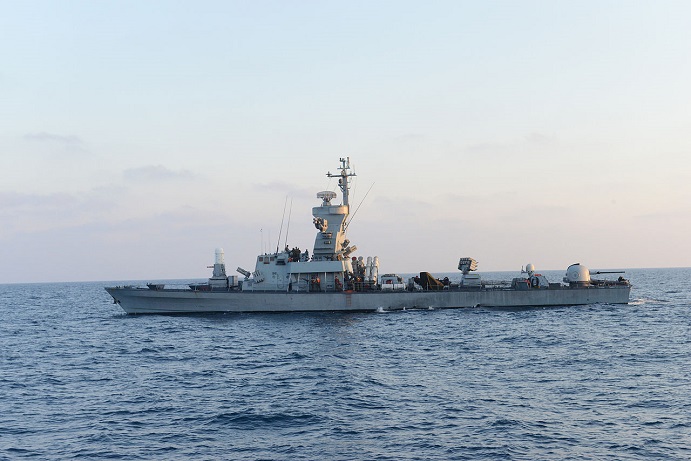Middle East Monitor / August 27, 2019
A prominent Israeli commentator revealed that Israel has been intervening in the Yemeni war between the Houthis and other Yemeni forces to serve Saudi interests.
Maariv’s security affairs commentator, Ran Edelist, said in an analysis he published on the newspaper’s website on Sunday: “Tel Aviv justifies its intervention in the ongoing conflict in Yemen under the pretext of defending its interests in the Red Sea and the Strait of Bab-El-Mandeb,” stressing that ”the truth is that the Israeli intervention in the Yemeni scene has been aimed at supporting Saudi Arabia in its attack against the Iranians and the killing of the Houthis.”
Edelist questioned Tel Aviv’s claims that the intervention in Yemen has been aimed at contributing to securing the Strait of Bab-El-Mandeb and protecting Israeli civilian maritime navigation in the Red Sea.
He said that Israel “proceeds from the assumption that the increasing its visibility in the Red Sea and the Strait of Bab-El-Mandeb could represent a deterrent factor to prevent the Houthis from targeting the trade line between Israel and Southeast Asia.”
He also explained that the Israeli intervention in Yemen “is part of a series of secret Israeli army interventions in various areas,” explaining that the intervention in Yemen “is the result of prior coordination between Israeli Prime Minister Benjamin Netanyahu and his foreign minister and leader of the Likud Party, Israel Katz.”
Edelist criticised the Israeli intervention in Yemen, wondering: “Have the security problems in Israel been significantly diminished to a point that makes it concerned about the implications of the development of events in Yemen?”
He said that though its intervention in the confrontation inside Yemen, the Israeli occupation army “acts as mercenary forces working for the United States and Saudi Arabia inside Yemen.”
He stressed that “Israel has no justification for intervening in Yemen, just because there is an intelligence warning,” pointing out that “Israeli leaders use the secrecy of intelligence information to mislead public opinion, and to cover up the decisions of wrong intervention in the various regional scenes.”
“There is no indication that the Houthi forces could threaten Israeli interests,” Edelist explained, urging the current Israeli leadership to “learn from the mistakes of its predecessors who deliberately intervened in regional scenes in a way that did not serve Tel Aviv’s interests.”
He described the intervention in Yemen as “childish” behaviour, recalling that “Israel had previously justified its interventions in regional scenes, based on the existence of secret intelligence information.”
Edelist considered that “Israeli officials’ special political calculations play an important role in this type of intervention,” adding that the keenness for maintaining the relationship with the “Saudi lover” has ultimately brought Israel to the point of intervening in Yemen. “What would drive us to intervene in a tribal conflict between the Houthis and the Saudi-backed tribes?” he wondered.
He pointed out that “Israel has intervened in Yemen following Saudi Arabia’s failure to resolve the confrontation against the Houthi rebellion, despite its sweeping power superiority.”
“Regardless of the nature of the Israeli military and intelligence intervention in the war in Yemen, this intervention will not affect the reality there,” Edelist stressed, adding that such intervention “implicates us in the crimes of genocide” against Yemeni people.
He warned that “the Israeli presence in Yemen has led the Houthis to accuse Tel Aviv of playing a role in the killing of Ibrahim Badreddin Al-Houthi, brother of Houthi leader in Sanaa Abdul Malik Al-Houthi.”
He recalled that “Foreign Minister Yisrael Katz was the first to hint at the Israeli intervention in the Yemeni war during a recent briefing before the Knesset Foreign Affairs and Security Committee, where he pointed out that Israel intervenes in areas that vary in geographical distance from Israel.”
“Katz hinted at Israel’s intervention in Yemen by pointing to the fact that Israel is a member of an international coalition to secure maritime navigation in the Gulf Region, as well as his emphasis on Tel Aviv’s commitment to curb Iranian expansion in the region,” Edelist further explained.













